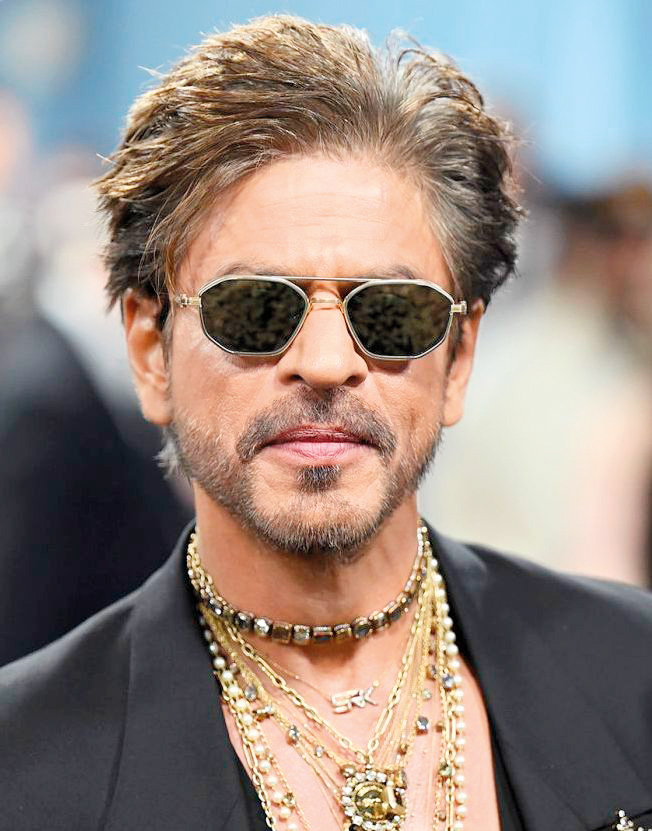Features
Indian colonialism in Sri Lanka

Following independence from Britain, both India and Sri Lanka emerged as leaders of the Non-Aligned Movement, which sought to advance developing nations’ interests during the Cold War. Indeed, the term “non-alignment” was itself coined by Indian Prime Minister Jawaharlal Nehru during his 1954 speech in Colombo. The five principles of the Non-Aligned Movement are: “mutual respect for each other’s territorial integrity and sovereignty; mutual non-aggression; mutual non-interference in domestic affairs; equality and mutual benefit; and peaceful co-existence.”
Later, Indian Prime Minister Indira Gandhi played a key role in supporting Sri Lankan Prime Minister Sirimavo Bandaranaike’s 1971 proposal to declare the Indian Ocean a Zone of Peace at the United Nations.
Such progressive ideals are in stark contrast to the current neocolonial negotiations between the two countries.
Indian Prime Minister Narendra Modi’s forthcoming visit to Sri Lanka on April 4, 2025, is presented as representing a mutually beneficial partnership that will bring economic development to debt-burdened Sri Lanka. However, the details of the strategic agreements to be signed during Modi’s visit remain undisclosed to the public. This opacity cannot be a good sign and should not be accepted uncritically by the media or the people of either nation.
The Indo-Lanka Agreement of July 29, 1987, was also crafted without consultation with the Sri Lankan people or its parliament. It was signed during a 48-hour curfew when former Indian Prime Minister Rajiv Gandhi arrived in Sri Lanka. This agreement led to the imposition of the 13th Amendment to the Sri Lankan Constitution and established the Provincial Council system. The political framework it created continues to challenge Sri Lanka’s territorial integrity and sovereignty. Rather than bringing peace, India’s 1987 intervention resulted in one of the most violent and chaotic periods in the island’s recent history.
Will these agreements being finalised with Prime Minister Modi also lead to a period of pillage and plunder of the island’s resources and worsening conditions for its people, rather than delivering the promised economic benefits? It is crucial that any bilateral agreements include enforceable measures to stop Indian bottom trawlers from illegally fishing in Sri Lankan territorial waters. This decades-long practice has caused severe damage to Sri Lanka’s marine resources and inflicted significant economic losses on its fishing communities.
Facing an increasing Chinese presence in Sri Lanka and the Indian Ocean, India has sought to strengthen its political, economic, strategic and cultural influence over Sri Lanka through various overt and covert means. During Sri Lanka’s 2022 economic crisis, for example, India provided $4 billion in financial assistance through currency swaps, credit lines, and loan deferrals that enabled Sri Lanka to import essential goods from India. While this aid has helped Sri Lanka, it has also served India’s interests by countering China’s influence and protecting Indian business in Sri Lanka.
Prime Minister Modi’s upcoming visit represents the culmination of years of Indian initiatives in Sri Lanka spanning maritime security, aviation, energy, power generation, trade, finance, and cultural exchanges. For example, India’s Unified Payment Interface (UPI) for digital payments was introduced in Sri Lanka in February 2024, and in October 2023 India provided funds to develop a digital national identity card for Sri Lanka raising concerns about India’s access to Sri Lanka’s national biometric identification data. Indian investors have been given preferential access in the privatisation of Sri Lanka’s state-owned enterprises (SOEs) in key sectors like telecommunications, financial services, and energy. Adani Group’s West Terminal project in Colombo Port is explicitly designed to counter China’s control over Sri Lanka’s port infrastructure, including the Colombo International Container Terminal, Hambantota Port, and Port City Colombo.
India and Sri Lanka have recently agreed to resume negotiations on the Economic and Technology Cooperation Agreement (ETCA), which focuses primarily on the service sector and aims to create a unified labour market. However, Sri Lankan professional associations have raised concerns that ETCA could give unemployed and lower-paid Indian workers a competitive advantage over their Sri Lankan counterparts. These concerns must be properly addressed before any agreement is finalised.
On December 16, 2024, India and Sri Lanka signed several Memoranda of Understanding (MOUs) in New Delhi to enhance cooperation in defense, energy, and infrastructure development. These include plans for electricity grid interconnection and a multi-product petroleum pipeline between the two countries. Building on these agreements, construction of the Sampur power plant in Trincomalee is expected to begin during Prime Minister Modi’s April visit.
The Sampur power plant project, combined with India’s takeover of the Trincomalee Oil Tank Farm, represents a significant step toward integrating Sri Lanka into India’s national energy grid. This development effectively brings Trincomalee’s strategic natural harbour – often called the “crown jewel” of Sri Lanka’s assets – under Indian control, transforming it into a regional energy hub. In 1987, during India’s military intervention in Sri Lanka, New Delhi pressured Colombo into signing a secret agreement stipulating that the British-era Trincomalee oil tank farm would be jointly developed with India and could not be used by any other country.
While India promotes its energy interconnection projects as enhancing regional energy security, recent experiences in Nepal demonstrate how electricity grid integration with India has made Nepal dependent on and subordinate to India for its basic energy needs. Similarly, Bangladesh’s electricity agreement with the Adani Group has created an imbalanced situation favouring Adani over Bangladeshi power consumers. What collective actions could Sri Lanka and other small nations take to avoid such unequal “energy colonialism” and protect their national security and sovereignty?
India’s emergence as a superpower and its expansionist policies are gradually transforming neighbouring South Asian and Indian Ocean states into economically and politically subordinate entities. Both Sri Lanka and the Maldives have adopted “India First” foreign policies in recent years, with the Maldives abandoning its “India Out” campaign in October 2024 in exchange for Indian economic assistance.
India’s “Neighbourhood First Policy” has led to deep involvement in the internal affairs of neighbouring countries including Sri Lanka. This involvement often takes the form of manipulating political parties, exploiting ethnic and religious divisions, and engineering political instability and regime changes – tactics reminiscent of colonial practices. It is well documented that India provided training to the LTTE and other terrorist groups opposing the Sri Lankan government during the civil war.
Contemporary Indian expansionism must be viewed within the broader context of the New Cold War and intensifying geopolitical competition between the United States and China. Given its strategic location along the vital east-west shipping routes in the Indian Ocean, Sri Lanka has become a pawn in this great power rivalry. In addition to granting China extensive control over key infrastructure, Sri Lanka has signed the Acquisition and Cross-Servicing Agreement (ACSA) and Status of Forces Agreement (SOFA) with the United States, effectively allowing the use of Sri Lanka as a U.S. military logistics hub. It was reported that during a visit to Sri Lanka in February 2023, Victoria Nuland, former Under Secretary of State for Political Affairs of the United States strongly suggested the establishment of a joint US-Indian military base in Trincomalee to counter Chinese activities in the region.
As a member of the Quadrilateral Security Dialogue (QUAD) – a strategic alliance against Chinese expansion that includes the United States, Australia and Japan – India participates in extensive QUAD military exercises like the Malabar exercises in the Indian Ocean. However, India’s role in QUAD appears inconsistent with its position as a founding member of BRICS (Brazil, Russia, India, China, South Africa), which was established to promote the interests of emerging economies and a multipolar world order. Unfortunately, BRICS appears to be replicating the same patterns of domination and subordination in its relations with smaller nations like Sri Lanka that characterise traditional imperial powers.
India presents itself as the guardian of Buddhism, particularly in its relations with Sri Lanka, to foster a sense of shared cultural heritage. However, it was Sri Lanka – not India – that preserved the Buddha’s teachings as they declined and eventually disappeared from India. Sri Lanka maintained the Buddhist tradition despite seventeen major invasions from India aimed at destroying the island’s Buddhist civilization.
Even today, despite its extensive influence, India has not taken meaningful steps to protect Buddhist temples and archaeological sites in Sri Lanka’s north and east from attacks by Tamil separatist groups. Instead, India appears focused on advancing the concept of Akhand Bharat (Undivided India) and Hindu Rashtra (Hindu Nation), which seeks to incorporate neighboring countries like Sri Lanka into a “Greater India.” The promotion of the bogus Ramayana Trail in Sri Lanka and the accompanying Hinduization pose a serious threat to preserving Sri Lanka’s distinct Buddhist identity and heritage.
Indian neocolonialism in Sri Lanka reflects a global phenomenon where powerful nations and their local collaborators – including political, economic, academic, media and NGO elites – prioritize short-term profits and self-interest over national and collective welfare, leading to environmental destruction and cultural erosion. Breaking free from this exploitative world order requires fundamentally reimagining global economic and social systems to uphold harmony and equality.
In this global transformation, India has a significant role to play. As a nation that endured centuries of Western imperial domination, India’s historical mission should be to continue to lead the struggle for decolonization and non-alignment, rather than serving as a junior partner in superpower rivalries. Under Mahatma Gandhi’s leadership, India championed the worldwide movement for decolonization and independence in the modern era.
Upholding the principles of the Non-Aligned Movement could forge a partnership benefiting both nations while preserving Sri Lanka’s independence and Buddhist identity. Otherwise, the New Cold War will continue to trample local sovereignty, where foreign powers vie to exploit the island’s resources, subjugate local communities and accelerate environmental and cultural destruction.
by Dr. Asoka Bandarage
Features
US’ drastic aid cut to UN poses moral challenge to world

 ‘Adapt, shrink or die’ – thus runs the warning issued by the Trump administration to UN humanitarian agencies with brute insensitivity in the wake of its recent decision to drastically reduce to $2bn its humanitarian aid to the UN system. This is a substantial climb down from the $17bn the US usually provided to the UN for its humanitarian operations.
‘Adapt, shrink or die’ – thus runs the warning issued by the Trump administration to UN humanitarian agencies with brute insensitivity in the wake of its recent decision to drastically reduce to $2bn its humanitarian aid to the UN system. This is a substantial climb down from the $17bn the US usually provided to the UN for its humanitarian operations.
Considering that the US has hitherto been the UN’s biggest aid provider, it need hardly be said that the US decision would pose a daunting challenge to the UN’s humanitarian operations around the world. This would indeed mean that, among other things, people living in poverty and stifling material hardships, in particularly the Southern hemisphere, could dramatically increase. Coming on top of the US decision to bring to an end USAID operations, the poor of the world could be said to have been left to their devices as a consequence of these morally insensitive policy rethinks of the Trump administration.
Earlier, the UN had warned that it would be compelled to reduce its aid programs in the face of ‘the deepest funding cuts ever.’ In fact the UN is on record as requesting the world for $23bn for its 2026 aid operations.
If this UN appeal happens to go unheeded, the possibilities are that the UN would not be in a position to uphold the status it has hitherto held as the world’s foremost humanitarian aid provider. It would not be incorrect to state that a substantial part of the rationale for the UN’s existence could come in for questioning if its humanitarian identity is thus eroded.
Inherent in these developments is a challenge for those sections of the international community that wish to stand up and be counted as humanists and the ‘Conscience of the World.’ A responsibility is cast on them to not only keep the UN system going but to also ensure its increased efficiency as a humanitarian aid provider to particularly the poorest of the poor.
It is unfortunate that the US is increasingly opting for a position of international isolation. Such a policy position was adopted by it in the decades leading to World War Two and the consequences for the world as a result for this policy posture were most disquieting. For instance, it opened the door to the flourishing of dictatorial regimes in the West, such as that led by Adolph Hitler in Germany, which nearly paved the way for the subjugation of a good part of Europe by the Nazis.
If the US had not intervened militarily in the war on the side of the Allies, the West would have faced the distressing prospect of coming under the sway of the Nazis and as a result earned indefinite political and military repression. By entering World War Two the US helped to ward off these bleak outcomes and indeed helped the major democracies of Western Europe to hold their own and thrive against fascism and dictatorial rule.
Republican administrations in the US in particular have not proved the greatest defenders of democratic rule the world over, but by helping to keep the international power balance in favour of democracy and fundamental human rights they could keep under a tight leash fascism and linked anti-democratic forces even in contemporary times. Russia’s invasion and continued occupation of parts of Ukraine reminds us starkly that the democracy versus fascism battle is far from over.
Right now, the US needs to remain on the side of the rest of the West very firmly, lest fascism enjoys another unfettered lease of life through the absence of countervailing and substantial military and political power.
However, by reducing its financial support for the UN and backing away from sustaining its humanitarian programs the world over the US could be laying the ground work for an aggravation of poverty in the South in particular and its accompaniments, such as, political repression, runaway social discontent and anarchy.
What should not go unnoticed by the US is the fact that peace and social stability in the South and the flourishing of the same conditions in the global North are symbiotically linked, although not so apparent at first blush. For instance, if illegal migration from the South to the US is a major problem for the US today, it is because poor countries are not receiving development assistance from the UN system to the required degree. Such deprivation on the part of the South leads to aggravating social discontent in the latter and consequences such as illegal migratory movements from South to North.
Accordingly, it will be in the North’s best interests to ensure that the South is not deprived of sustained development assistance since the latter is an essential condition for social contentment and stable governance, which factors in turn would guard against the emergence of phenomena such as illegal migration.
Meanwhile, democratic sections of the rest of the world in particular need to consider it a matter of conscience to ensure the sustenance and flourishing of the UN system. To be sure, the UN system is considerably flawed but at present it could be called the most equitable and fair among international development organizations and the most far-flung one. Without it world poverty would have proved unmanageable along with the ills that come along with it.
Dehumanizing poverty is an indictment on humanity. It stands to reason that the world community should rally round the UN and ensure its survival lest the abomination which is poverty flourishes. In this undertaking the world needs to stand united. Ambiguities on this score could be self-defeating for the world community.
For example, all groupings of countries that could demonstrate economic muscle need to figure prominently in this initiative. One such grouping is BRICS. Inasmuch as the US and the West should shrug aside Realpolitik considerations in this enterprise, the same goes for organizations such as BRICS.
The arrival at the above international consensus would be greatly facilitated by stepped up dialogue among states on the continued importance of the UN system. Fresh efforts to speed-up UN reform would prove major catalysts in bringing about these positive changes as well. Also requiring to be shunned is the blind pursuit of narrow national interests.
Features
Egg white scene …

 Hi! Great to be back after my Christmas break.
Hi! Great to be back after my Christmas break.
Thought of starting this week with egg white.
Yes, eggs are brimming with nutrients beneficial for your overall health and wellness, but did you know that eggs, especially the whites, are excellent for your complexion?
OK, if you have no idea about how to use egg whites for your face, read on.
Egg White, Lemon, Honey:
Separate the yolk from the egg white and add about a teaspoon of freshly squeezed lemon juice and about one and a half teaspoons of organic honey. Whisk all the ingredients together until they are mixed well.
Apply this mixture to your face and allow it to rest for about 15 minutes before cleansing your face with a gentle face wash.
Don’t forget to apply your favourite moisturiser, after using this face mask, to help seal in all the goodness.
Egg White, Avocado:
In a clean mixing bowl, start by mashing the avocado, until it turns into a soft, lump-free paste, and then add the whites of one egg, a teaspoon of yoghurt and mix everything together until it looks like a creamy paste.
Apply this mixture all over your face and neck area, and leave it on for about 20 to 30 minutes before washing it off with cold water and a gentle face wash.
Egg White, Cucumber, Yoghurt:
In a bowl, add one egg white, one teaspoon each of yoghurt, fresh cucumber juice and organic honey. Mix all the ingredients together until it forms a thick paste.
Apply this paste all over your face and neck area and leave it on for at least 20 minutes and then gently rinse off this face mask with lukewarm water and immediately follow it up with a gentle and nourishing moisturiser.
Egg White, Aloe Vera, Castor Oil:
To the egg white, add about a teaspoon each of aloe vera gel and castor oil and then mix all the ingredients together and apply it all over your face and neck area in a thin, even layer.
Leave it on for about 20 minutes and wash it off with a gentle face wash and some cold water. Follow it up with your favourite moisturiser.
Features
Confusion cropping up with Ne-Yo in the spotlight

 Superlatives galore were used, especially on social media, to highlight R&B singer Ne-Yo’s trip to Sri Lanka: Global superstar Ne-Yo to perform live in Colombo this December; Ne-Yo concert puts Sri Lanka back on the global entertainment map; A global music sensation is coming to Sri Lanka … and there were lots more!
Superlatives galore were used, especially on social media, to highlight R&B singer Ne-Yo’s trip to Sri Lanka: Global superstar Ne-Yo to perform live in Colombo this December; Ne-Yo concert puts Sri Lanka back on the global entertainment map; A global music sensation is coming to Sri Lanka … and there were lots more!
At an official press conference, held at a five-star venue, in Colombo, it was indicated that the gathering marked a defining moment for Sri Lanka’s entertainment industry as international R&B powerhouse and three-time Grammy Award winner Ne-Yo prepares to take the stage in Colombo this December.
What’s more, the occasion was graced by the presence of Sunil Kumara Gamage, Minister of Sports & Youth Affairs of Sri Lanka, and Professor Ruwan Ranasinghe, Deputy Minister of Tourism, alongside distinguished dignitaries, sponsors, and members of the media.
According to reports, the concert had received the official endorsement of the Sri Lanka Tourism Promotion Bureau, recognising it as a flagship initiative in developing the country’s concert economy by attracting fans, and media, from all over South Asia.
However, I had that strange feeling that this concert would not become a reality, keeping in mind what happened to Nick Carter’s Colombo concert – cancelled at the very last moment.
Carter issued a video message announcing he had to return to the USA due to “unforeseen circumstances” and a “family emergency”.
Though “unforeseen circumstances” was the official reason provided by Carter and the local organisers, there was speculation that low ticket sales may also have been a factor in the cancellation.
Well, “Unforeseen Circumstances” has cropped up again!
In a brief statement, via social media, the organisers of the Ne-Yo concert said the decision was taken due to “unforeseen circumstances and factors beyond their control.”
Ne-Yo, too, subsequently made an announcement, citing “Unforeseen circumstances.”
The public has a right to know what these “unforeseen circumstances” are, and who is to be blamed – the organisers or Ne-Yo!
Ne-Yo’s management certainly need to come out with the truth.
However, those who are aware of some of the happenings in the setup here put it down to poor ticket sales, mentioning that the tickets for the concert, and a meet-and-greet event, were exorbitantly high, considering that Ne-Yo is not a current mega star.
We also had a cancellation coming our way from Shah Rukh Khan, who was scheduled to visit Sri Lanka for the City of Dreams resort launch, and then this was received: “Unfortunately due to unforeseen personal reasons beyond his control, Mr. Khan is no longer able to attend.”
Referring to this kind of mess up, a leading showbiz personality said that it will only make people reluctant to buy their tickets, online.
“Tickets will go mostly at the gate and it will be very bad for the industry,” he added.
-

 News7 days ago
News7 days agoStreet vendors banned from Kandy City
-

 Sports4 days ago
Sports4 days agoGurusinha’s Boxing Day hundred celebrated in Melbourne
-

 News7 days ago
News7 days agoLankan aircrew fly daring UN Medevac in hostile conditions in Africa
-

 News2 days ago
News2 days agoLeading the Nation’s Connectivity Recovery Amid Unprecedented Challenges
-

 Sports5 days ago
Sports5 days agoTime to close the Dickwella chapter
-

 Features3 days ago
Features3 days agoIt’s all over for Maxi Rozairo
-

 Features7 days ago
Features7 days agoRethinking post-disaster urban planning: Lessons from Peradeniya
-

 Opinion7 days ago
Opinion7 days agoAre we reading the sky wrong?















